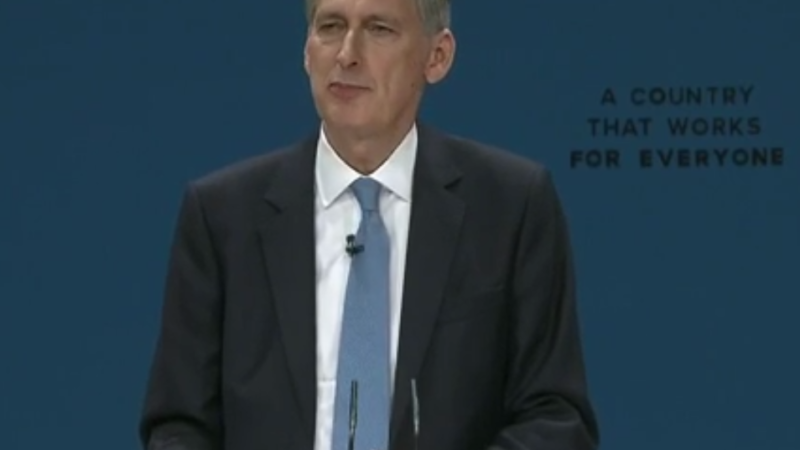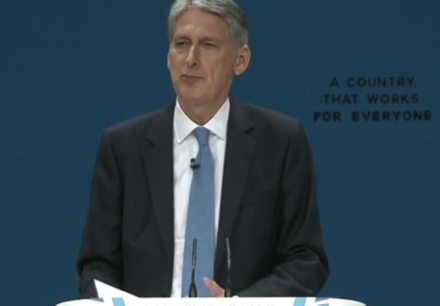

Next week, we will get our first real look at what type of chancellor Philip Hammond is likely to be. There will be great speculation and intrigue over which rabbits will come out of which hats; which are real; and which are made of smoke. Far less attention, however, will be paid to the state of the underlying economy and its present trajectory – upon which the viability of the public finances actually depends.
Notwithstanding acknowledgment for bumpy ride posed by Brexit, we have been told by consecutive Conservative chancellors that the economy is in eminently good health. In June, George Osborne announced that Britain will at least face the effects of leaving the EU “from a position of strength”. In October, Hammond repeated this message at the Party’s annual conference, arguing that “we enter … negotiations from a position of fundamental economic strength”.
Sadly, the evidence doesn’t so much fail to bear out these claims, as it does to make a mockery of them.
The economy is out of shape and vulnerable. Our trade deficit is wide and widening, which means as a country we only pay our way in the world through the “kindness of strangers” who continue to buy up our companies and properties from overseas.
But we also have chronic under-investment relative to other advanced economies. Productivity levels are consequently low by international comparison, and domestic productivity growth has completely stalled since the financial crisis; a phenomenon that is without modern precedent anywhere in the world.
Low productivity also means a low price of labour relative to capital, subduing earnings growth for the majority but amplifying returns for those who already own wealth and assets. Inequality, therefore, remains at eye watering levels. The economy is seven per cent larger compared with 2008, but the median family has seen more or less no improvement in disposable income since 2005. The country is also divided by geography. The recovery has almost entirely occurred in London and the southeast: in no other region has GDP per head recovered its pre-crisis peak.
It is little surprise then, that the public finances are actually untenable in the long term – although few will be talking about it next week.
Even if Britain had reached a surplus in 2019/20 (a target that we are likely to see revised significantly on Wednesday), according to its own watchdog the government would still have returned to deficit within four years, and without a single new public spending commitment. Within 30 years, the deficit would have been twice as large again as a percentage of GDP as it is forecast for the present financial year.
In some ways, the timing could not be worse. Interests rates are more likely to fall to another record low before they rise again, which means the public purse may yet be called upon to take on further liabilities to boost the rest of the economy. But at the same time, what is striking about most of the UK’s economic frailties, is that they have been with us for at least a quarter of a century.
All of this points to one thing: there is something fundamentally wrong with the UK economy.
It is for this reason that IPPR is launching a major new programme: the IPPR Commission on Economic Justice. The commission’s members have been drawn from across UK business, trade unions, academia and civil society, and its two-year research programme will seek to understand the economy as it is experienced by the people who work in it, all over the country.
The aim is to show how we can fundamentally reshape and rewire the economy; deliver broadly shared prosperity and actually make the economy work for us all.
Alfie Stirling is senior economic analyst at the Institute for Public Policy Research (IPPR).




More from LabourList
Turning the page? Labour’s recovery in the polls show a path to 2029 victory
Restoration announce recommendations for NEC candidates
‘Factionalism at the top is weakening Labour – and handing a gift to Reform’